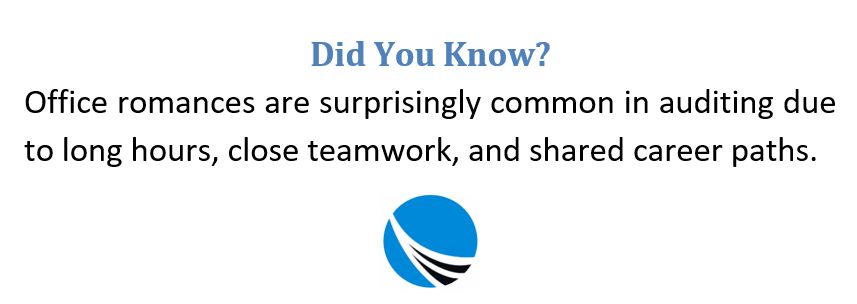A career in auditing often unfolds in ways both predictable and surprising. Whether you’re just beginning your journey or have spent years in the field, certain experiences seem almost guaranteed. They come with challenges, sometimes discomfort, but also valuable growth. Here are six scenarios that nearly every auditor faces—and how to navigate them with confidence and clarity.

Facing the Fallout: When Your Work Leads to Termination
There may come a moment in your career when your findings result in someone losing their job. This isn’t a personal attack—it’s a professional consequence of uncovering unethical or non-compliant behavior. The thrill of discovering evidence or piecing together a case may initially feel rewarding. You may even feel vindicated, having followed the data where it led.
However, that satisfaction can quickly give way to discomfort. Auditors often wrestle with guilt or second-guess their actions, especially when the fallout becomes visible. Remember, the decision to commit wrongdoing wasn’t yours. Your role is to present facts, not pass judgment. If you’re feeling emotionally depleted, take time to recharge. Find comfort in small pleasures—whether it’s a walk, a hobby, or a quiet dinner. Your mental well-being matters just as much as the outcome of any audit.
When the File Closes and Reality Sets In
During an internal audit, an auditor uncovers clear evidence of repeated policy violations tied to a single role. The findings are documented carefully, reviewed, and passed on through the proper channels. Weeks later, the auditor learns that the employee involved has been dismissed. There’s no celebration—just a quiet realization that real lives are affected by audit work. After a long day, the auditor takes a step back, reminds themselves they followed the facts, and focuses on restoring emotional balance before moving on to the next assignment.
When Criticism Comes From Doing Your Job
You might assume that acting professionally and diligently would shield you from complaints—but it doesn’t. Sooner or later, someone will criticize you, not because you were wrong, but because your audit disrupted their comfort zone. They may lash out, send angry emails, or escalate to management.
The key is to stay calm and transparent. Don’t attempt to hide the issue; it won’t disappear. When asked to explain, speak factually and avoid being defensive. Let your work speak for itself. Support from leadership is crucial in these situations. If your supervisors fail to understand the nature of the role—or if they take complaints personally—you may need to evaluate whether the organization supports its auditors in tough times as well as easy ones.
You’ll Discover Things You’d Rather Not Know
Auditors often end up learning more than they ever wanted to—about people, processes, or practices. Whether it’s a questionable vendor relationship, a coworker’s financial trouble, or details about internal politics, you’ll have access to confidential and sometimes unsettling information.
This access comes with a responsibility: discretion. Even if you uncover something surprising or disturbing, resist the urge to share it. What you learn at work should stay there, no matter how tempting it may be to vent or joke about it later. Keeping sensitive knowledge private is a mark of professionalism—and an essential trait for maintaining trust in your role.
You Might Meet Your Partner at Work
Romantic connections among coworkers are fairly common, and audit teams are no exception. Shared hours, teamwork, and similar life stages often lead to relationships. It’s not unusual for audit departments to have a couple or two who met on the job.
When these relationships are healthy, consensual, and managed professionally, they can be enriching. But issues arise when workplace romance intersects with hierarchy, favoritism, or conflict. If you’re in a relationship at work, be mindful of how it may be perceived and ensure boundaries are respected—both personally and professionally. When approached with maturity, these connections don’t have to interfere with your audit work.

Alcohol Is Often Part of the Social Scene
Professional gatherings, client dinners, and firm celebrations frequently involve alcohol. While enjoying a drink in moderation is often seen as a way to unwind, the setting still demands self-control. Overindulgence can damage your credibility quickly—and sometimes permanently.
One incident at a work event can overshadow years of good performance. Know your limits, and don’t assume that everyone’s drinking signals that you should, too. Some of the best networking moments can happen over a single drink—or none at all. Choose what makes you comfortable and helps you remain in control of your conduct.
You’ll Visit Unexpected Places and Meet Unlikely People
One of the quiet perks of audit work is the opportunity to travel. Not just to glamorous cities, but to lesser-known towns, rural outposts, and regional hubs. These journeys often take you off the beaten path—and lead to discoveries you wouldn’t have made otherwise.
You’ll find yourself in local diners, roadside motels, and small-town businesses, absorbing experiences that broaden your view of the world. You’ll meet people who offer insights into industries, communities, and cultures outside your own. While it can be tiring to be on the road, it’s also an opportunity to gather stories, build connections, and grow personally and professionally.
Try exploring the places you audit, even in small ways. Ask a local for a food recommendation or walk around the neighborhood. These simple experiences can turn an ordinary trip into a memorable one.
Final Reflections
Auditing isn’t just about numbers and reports—it’s a people-driven, dynamic career that comes with emotional highs and lows. You’ll face ethical dilemmas, handle interpersonal friction, and witness behavior that challenges your beliefs. But you’ll also grow, develop resilience, and gain insight into how businesses really function.
If you’ve already experienced some of these moments, know that you’re not alone. Each situation is a chance to refine your skills, test your values, and build professional character. If you haven’t yet faced them, consider this your roadmap. When these moments arrive—and they will—you’ll be better prepared to handle them with confidence and integrity.

